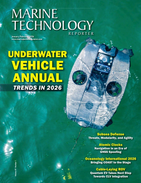New England Aquarium Researchers Use Drone Technology to Monitor Climate Change Impacts on Whales
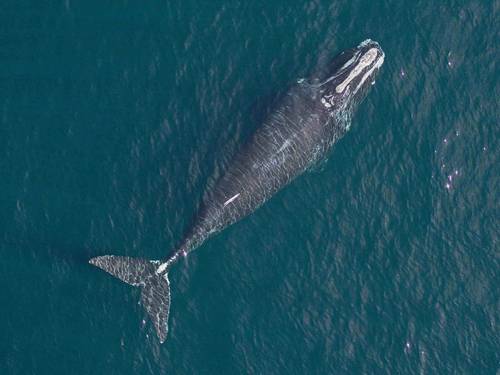
A North Atlantic Right Whale. Credit: Woods Hole Oceanographic Institution/NOAA/SeaLife Response, Rehabilitation and Research; under NMFS Research Permit #17355. Both photos were taken non - invasively by Dr. John Durban using a custom research drone.
Scientists are using drone technology to study how changing ocean conditions are impacting whales, advancing this non-invasive research technique in both New England waters with North Atlantic right whales and in Alaska with killer whales.
Scientists with the Anderson Cabot Center for Ocean Life at the New England Aquarium recently captured drone images of killer whale mothers with calves in Prince William Sound in the northern Gulf of Alaska during field research in June, in collaboration with the non-profit North Gulf Oceanic Society (NGOS).
Photogrammetry uses high-resolution aerial photos to collect body measurements and assess the health of a whale by understanding its condition and growth. The New England Aquarium has been at the forefront of right whale research dating back to the 1980s, making its work and NGOS’ killer whale research two of the longest studies of marine mammals in the world.
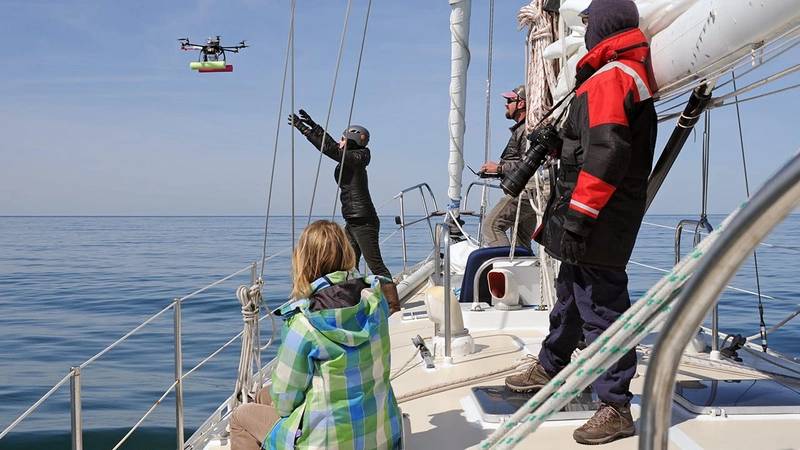 Photogrammetry can be used to monitor wildlife, like whales. Credit: Véronique LaCapra, Woods Hole Oceanographic Institution; under NMFSResearch Permit #17355
Photogrammetry can be used to monitor wildlife, like whales. Credit: Véronique LaCapra, Woods Hole Oceanographic Institution; under NMFSResearch Permit #17355
“Scientists have decades of population data on both North Atlantic right whales and killer whales in the North Pacific, and now we can use photogrammetry to gain new insights on whale health to better understand the causes of population changes,” said Dr. John Durban, who is chair of the Anderson Cabot Center’s Spatial Ecology, Mapping, and Assessment (EcoMap) program.
For more than 20 years, Dr. Durban and NGOS have tracked the recovery of killer whales, sometimes known as orcas, following the impacts of the Exxon Valdez oil spill in 1989—but this recovery was halted by the sudden impact of a marine heat wave from 2014 to 2016. Some killer whale pods have been slow to rebound, in part because of the prolonged impact on calving that has persisted after the heat wave. In 2025, the Aquarium and NGOS sighted three new calves and used their drones to show that older calves born since the heat wave are growing well, giving hope for renewed population growth.
Like killer whales, North Atlantic right whales have experienced increased impacts due to climate change. They are shifting their feeding areas to find zooplankton prey that prefer colder waters, exposing this critically endangered whale species to greater risk of fishing gear entanglements and vessel strikes in areas without existing protection measures. The right whale population is estimated at only about 370 individuals.
Alongside colleagues from Woods Hole Oceanographic Institution, Dr. Durban has been deploying drones for right whale photogrammetry in Cape Cod Bay over the last decade. He is now collaborating with the Anderson Cabot Center’s aerial survey team, led by Research Scientist Orla O’Brien, to broaden this effort by outfitting the team’s research plane with special cameras. The technology will allow scientists to collect photogrammetry data on individual right whales far beyond Cape Cod Bay and in the wintertime when boat-based field work is challenging.

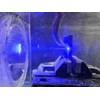
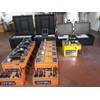
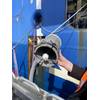
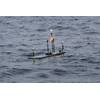
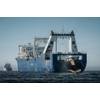
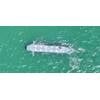






 February 2026
February 2026


